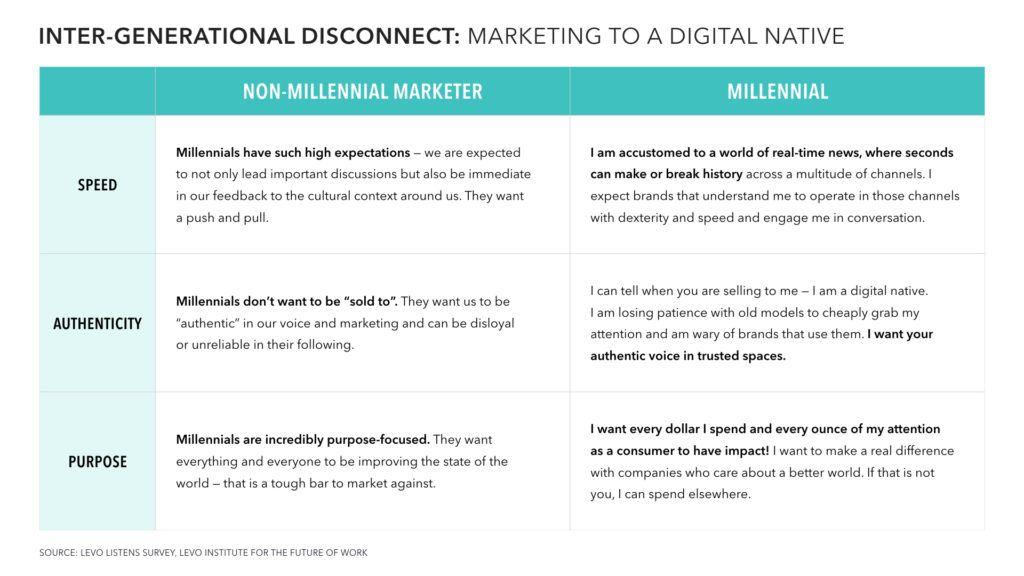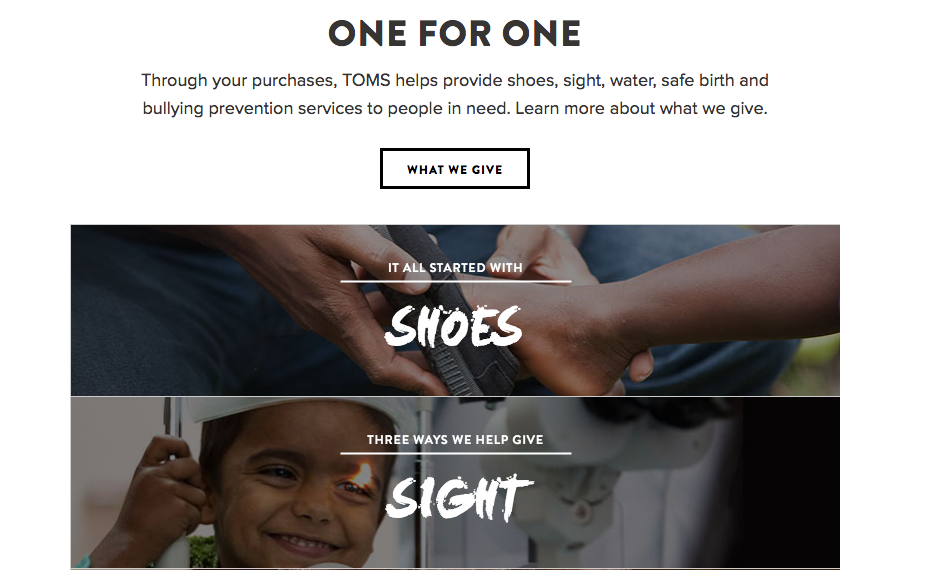How to Solve Your Company’s Millennial Marketing Crisis
Published on June 02, 2016/Last edited on June 02, 2016/6 min read


Team Braze
Millennials are like unicorns. They’re mysterious creatures that no one seems to fully understand. The common perception is that they’re unabashedly needy, spoiled, hoverboarding young people who shack up in their parents’ houses, post endless amount of selfies, and always think about themselves. But many argue that they hold the keys to companies’ success in our increasingly progressive, conscious, and connected society. And given the facts that millennials have surpassed baby boomers as the U.S.’ largest living generation, and have $200 billion in annual buying power, that argument seems more believable.
Understanding why millennials love crying Jordan memes and puppy GIFs is one thing. Figuring out how to make them like and engage with your brand is a completely different ball game. According to research by Levo Institute For The Future Of Work, when it comes to engaging with brands, there are three values that millennials care about the most: speed, authenticity, and purpose.
Here’s how you can leverage these three core millennial values to grow your company and make your marketing strategy more effective.
How To Solve Your Company’s Millennial #Marketing Crisis
1. Stay nimble, work in real time
We’ve reached a point where “real-time” isn’t just a buzzword. It’s an essential component for the way millennials consume news and content and communicate on the web. Millennials expect brands to lead the discussion on hot topics in real time across multiple channels. They also expect digital conversations to happen as fast they do in person. For example, instead of emailing their favorite brands for help, millennials might take an alternative approach and tweet brands to find quick solutions to their problems. Millennials are digital natives who are accustomed to real-time communication, where seconds matter.
So how do you engage customers with speed and immediacy? Make it a priority through hiring.
Establish a team that’s dedicated to community management and social listening. For example, hire social media and audience development managers whose tasks are to keep customers engaged, respond to feedback, and research the latest trends that shift the conversations millennials are having amongst themselves. The intel that’s gathered from trend research can then be incorporated into the marketing, customer service, and product teams’ work for a better overall brand experience.

Research by Levo, a professional network for millennials, reveals three core values millennials care about when engaging with brands.
2. Keep it real and authentic
Marketing has historically gotten a bad rap as a way for brands to “shout” at customers without any real two-way dialogue. This doesn’t fly with millennials. Millennials don’t want to be “sold to.” They’re well-aware of schemes to grab their attention and influence actions that they don’t want to take. This causes brands who “don’t get it” to struggle with their marketing messaging.
In order to effectively reach millennials, marketing has to be seen as more than a sales pitch. Marketing has to be a conversation and a way to provide personalized and contextual value. Furthermore, it has to be authentic. But what does authenticity mean in this context and how is it done?
#Marketing has to be a conversation and a way to provide personalized and contextual value.
Authenticity starts with what your company values and then incorporating those values into personalized, transparent two-way dialogue with customers. Here are four ways to make your brand more authentic:
- Personalize your brand voice by speaking the vernacular that your customers are speaking online. This means using whatever methods of communication they use, as well as incorporating the words, slang, imagery, and emojis that resonate best with them.
- Talk about your company as a whole, not just your product. Show behind-the-scenes photos of your office and put your employees and company values at the forefront.
- Acknowledge your missteps…publicly. As Ankit Shah said at Appboy’s LTR SF 2016 conference, “When brands actually acknowledge that they make mistakes, it’s awesome.”
- Use targeting and CRM technologies to make customer experiences more relevant and personalized. Millennials want brands that reach them, not everybody else.
3. Create products with a purpose
Millennials are extremely purpose-driven in that they want every dollar and every second of their time as a consumer to make an impact. They want to make a real difference with companies who care about giving back to society and improving the world. These values have sparked conscious consumerism, a movement in which there’s increased interest in ethical business practices, goods, and services that are sustainable, better for the planet, and have a positive impact on people.
Millennials are extremely purpose-driven in that they want every dollar and every second of their time as a consumer to make an impact.
To make your customers’ dollars more impactful, create products with a purpose and turn them into a source for good. For example, every time they sell a pair of shoes, TOMS Shoes gives a new pair of shoes to an impoverished child. Furthermore, create transparency around manufacturing and other business practices in which there’s public interest.
When it comes to reaching millennials, your story has to be genuine and has to tie into your product. When your story isn’t backed up by your product, customers feel cheated. When in doubt, always ask yourself this question: if people actually knew the real story, would they still like what I’m doing?
Put simply, millennials don’t just want stuff. They want meaningful stuff, and they’ll spend their money with the companies whose stuff has the better impact on society and the world at large.

Every time they sell a pair of shoes, TOMS Shoes gives a new pair of shoes to an impoverished child.
Save your $20,000
If you incorporate the three components above into your company’s strategy, you won’t need to spend $20,000 on a millennial consultant to help you decode this mysterious generation. At the end of the day, millennials are still people with individual needs. Making broad assumptions about the millennial generation will prevent you from fully understanding and engaging your customers.
It’s important to personalize all marketing communications with millennials and realize that millennial needs are just basic human needs. When developing a strategy for marketing to millennials, don’t think of it as marketing. Think of it as a conversation.
Take a look at four additional people-first strategies from Appboy’s LTR SF 2016 conference.
Releated Content
View the Blog
Building spaces for connection: Inside our Bucharest office
Nina Lewis

Data agility at a massive scale: How the Braze Data Platform supports customer engagement

Sahiz Kaur

AI customer retention: Strategies, tactics, and mistakes to avoid
